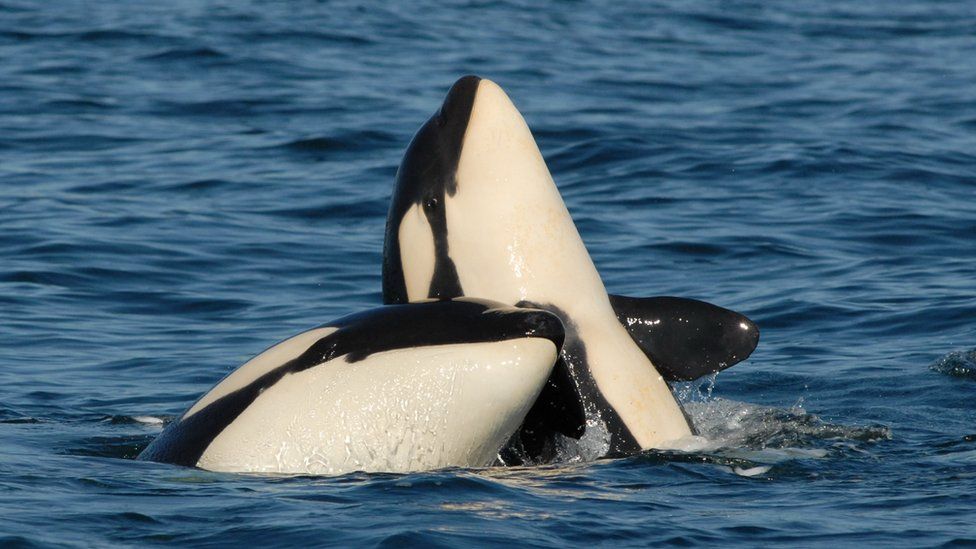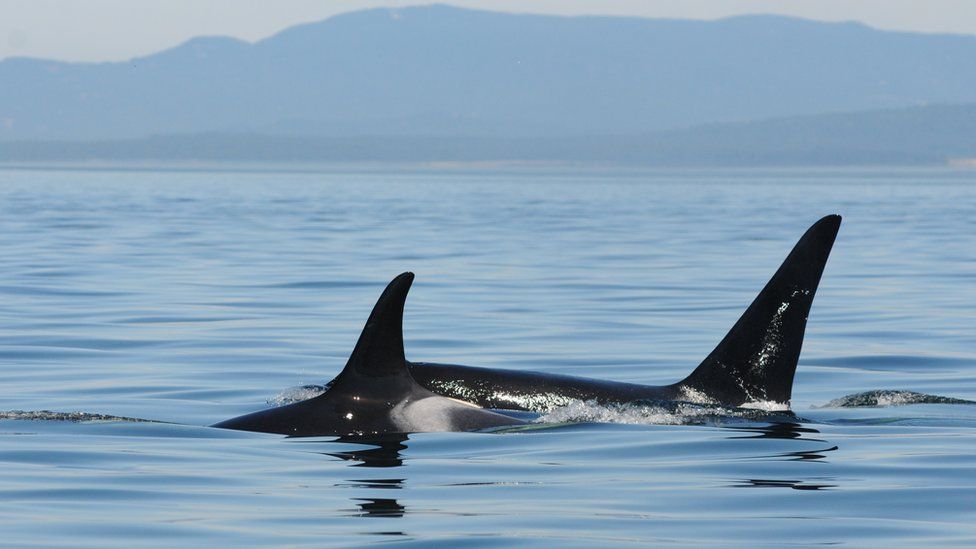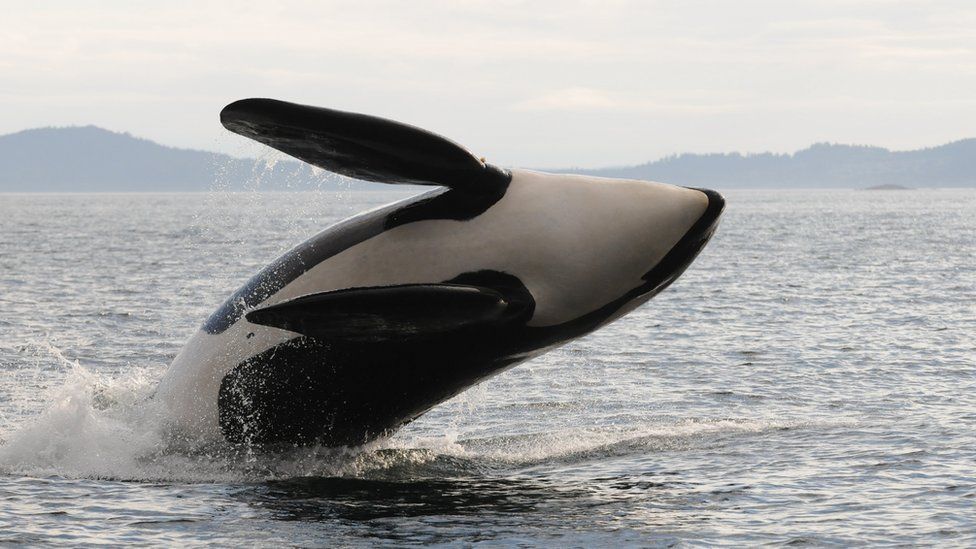Rearing a son is a lifelong cost for a killer whale mother, a decades-long study reveals.
 Image source, Center for Whale Research
Image source, Center for Whale ResearchA study of orcas in the North Pacific has revealed that mothers make a “lifelong sacrifice” for their sons.
Rearing a son significantly reduced a female killer whale’s chance of reproducing in the future.
The energy they need to feed sons appears to compromise their health, leaving them less able to reproduce and raise other young.
“Mothers sacrifice their own food and their own energy,” said Prof Darren Croft from the University of Exeter.
Orcas remain closely bonded to their families throughout their lives. But while young female offspring become independent in adulthood, males depend on their mothers – even demanding a share of the food that their matriarchs catch.
Prof Croft described it as a “new insight into the complex social lives and family lives of these amazing animals”.
The decades-long study, published in the journal Current Biology, is part of an ongoing mission to understand killer whale family life.
It was made possible by the Center for Whale Research (CWR), which has followed the lives of a population of killer whales, known as the Southern Residents, for more than 40 years.

Image source, Center for Whale Research
Since 1976, the CWR has produced a complete census of the Southern Resident population, which enabled biologists to carry out multi-generation studies like this one – disentangling critical social behaviour and family bonds that directly impact the animals’ survival.
For this research, scientists examined the lives of 40 female orcas between 1982 and 2021, and discovered that for each living son, a mother’s annual likelihood of rearing another calf to one year old was cut by half.
“Our previous research has shown that sons have a higher chance of survival if their mother is around,” said Dr Michael Weiss from the University of Exeter and Center for Whale Research.
“We wanted to find out if this help comes at a price and answer is yes. Killer whale mothers pay a high cost in terms of their future reproduction to keep their sons alive.”
Killer whale families
The ongoing study of this threatened killer whale population, that lives in the coastal waters between Vancouver and Seattle, was started by Dr Ken Balcomb. Initially, he wanted to examine the threats to their survival.

Image source, Cener for Whale Research
The ensuing work went on to reveal insights into killer whale life that could only have come to light through decades of study. Biologists have worked with the CWR to reveal, for example, the vital role of killer whale grandmothers and why, like humans, females of this species cease reproduction part way through their lives.
From their years of studying killer whale interactions, scientists already knew that mothers and sons “hung out” together well into the male’s adulthood.
“They’ll even feed their sons salmon they catch,” explained Prof Croft, whereas adult female offspring will hunt independently.
This could, the researchers think, be a kind of evolutionary “bet-hedging”, driven by the fact that the biggest, oldest males go on to father many offspring.
“If a mother can get their son to become that big male in the population, then he’s the one that will sire [much of the next generation],” explained Prof Croft.
It may seem paradoxical that such powerful, intelligent animals remain dependent on their mothers through their lives, but it appears that males simply don’t have to become independent, because their mother remains by their side.
“If my mother cooked my dinner for me every night, perhaps I just wouldn’t learn to cook my own dinner,” joked Prof Croft.
“But, indirectly, it does seem to be in a mother’s interest.”
This video can not be played
To play this video you need to enable JavaScript in your browser.
There are currently just 73 of these killer whales left, so the scientists say they need to understand anything that could help inform decisions about how to protect these marine mammals.
“These southern resident killer whales are balancing on a knife-edge and at risk of extinction,” said Prof Croft. “So anything that reduces females’ reproduction is a concern for this population.”
The Southern Residents were the subject of award-winning BBC Radio 4 documentary, The Whale Menopause
Follow Victoria on Twitter